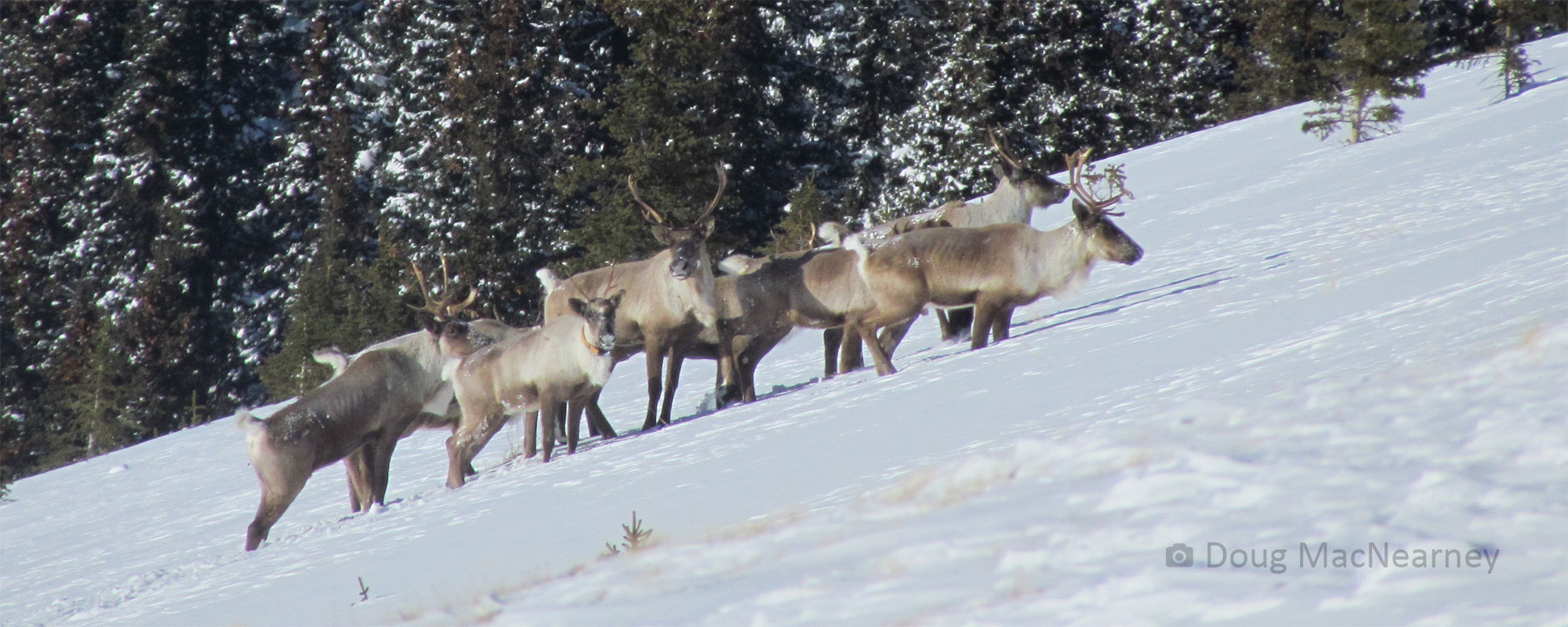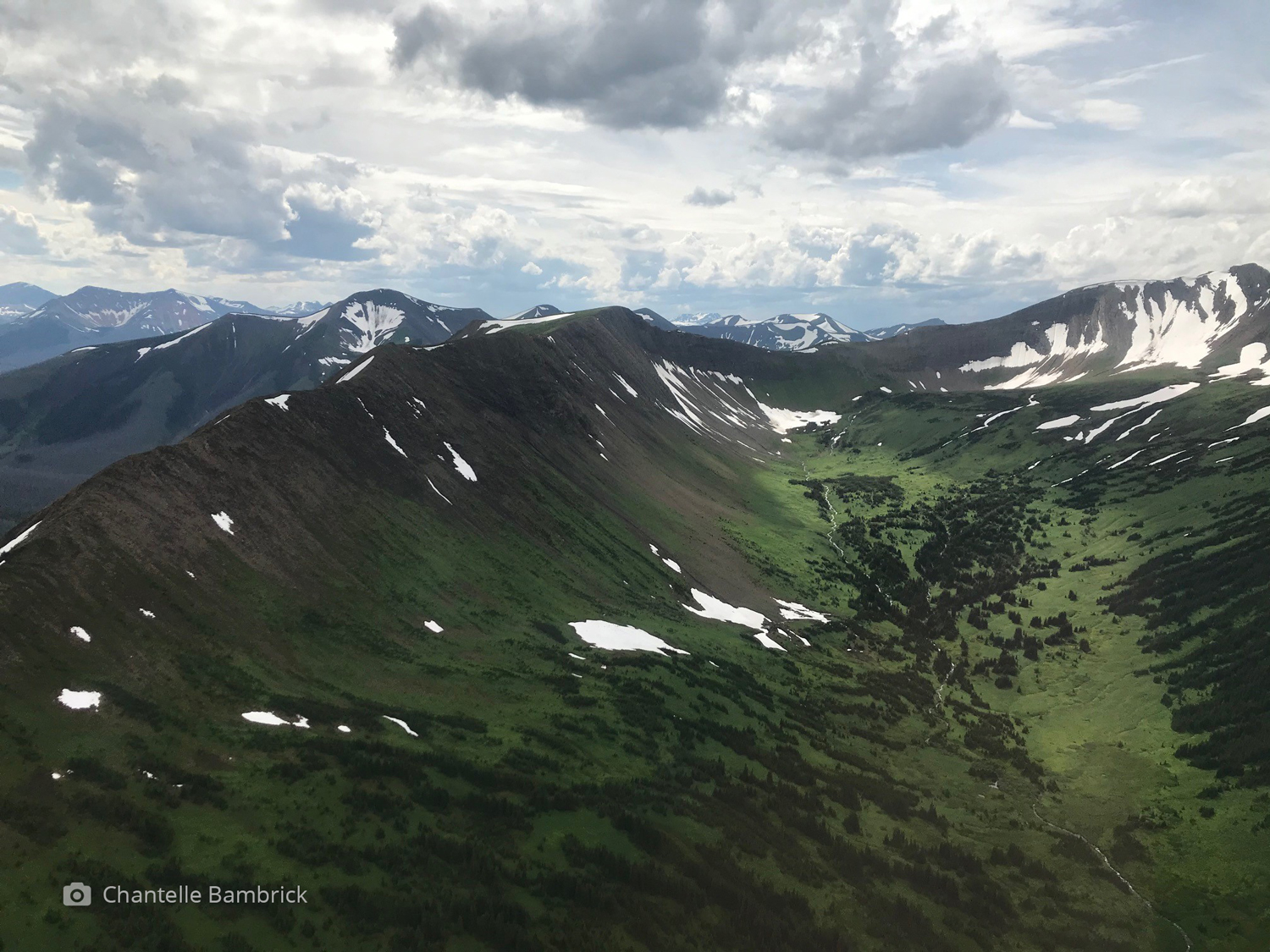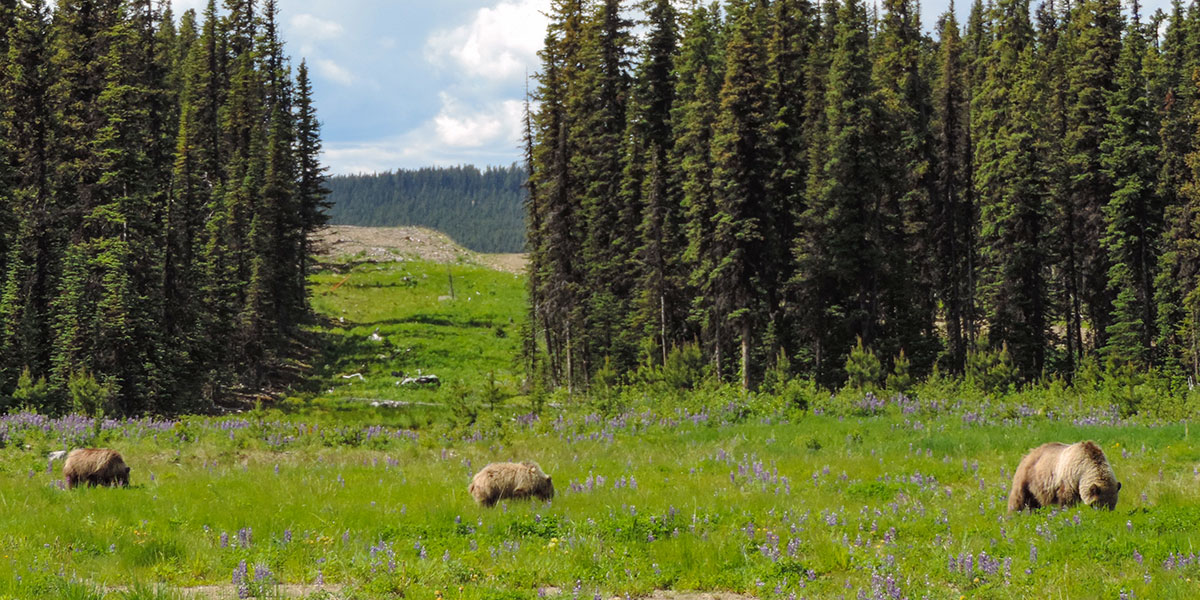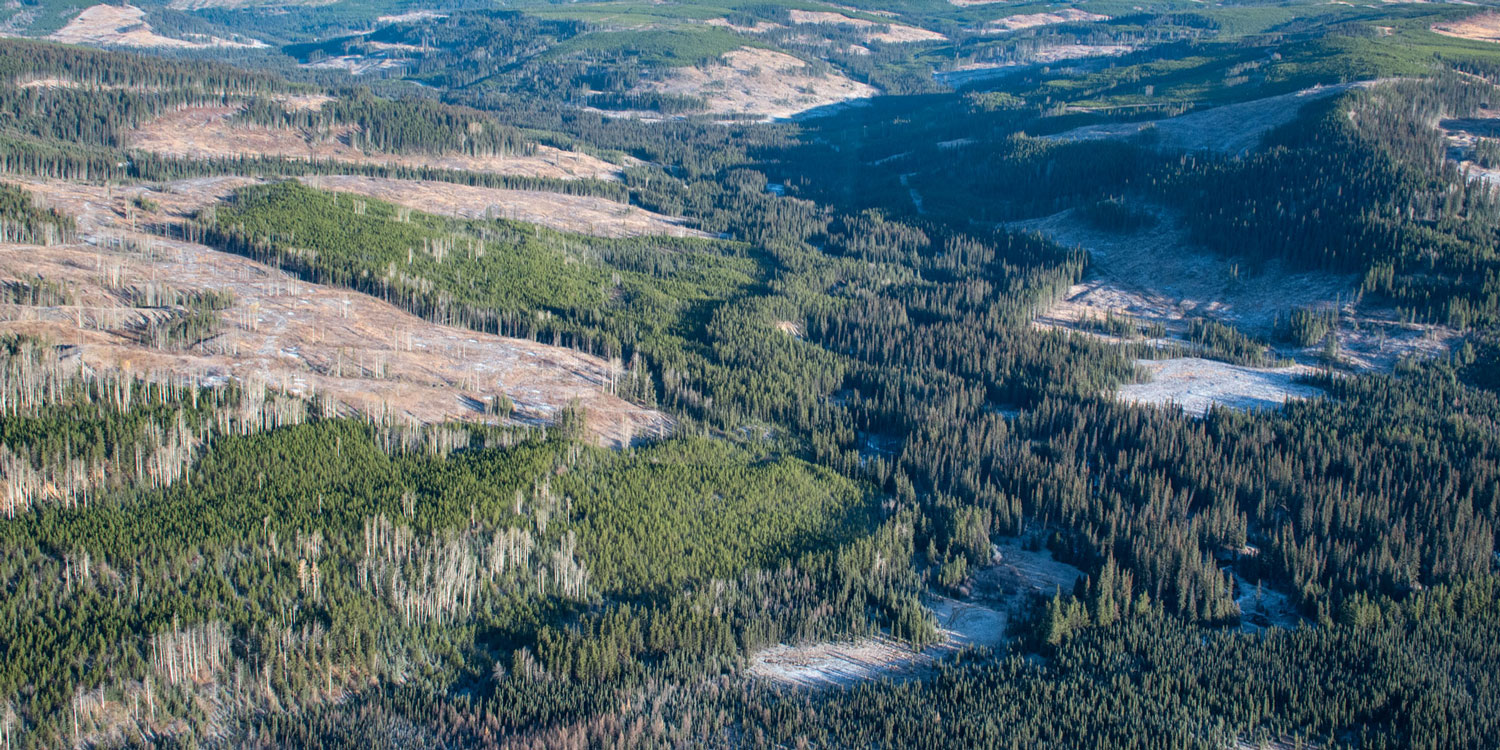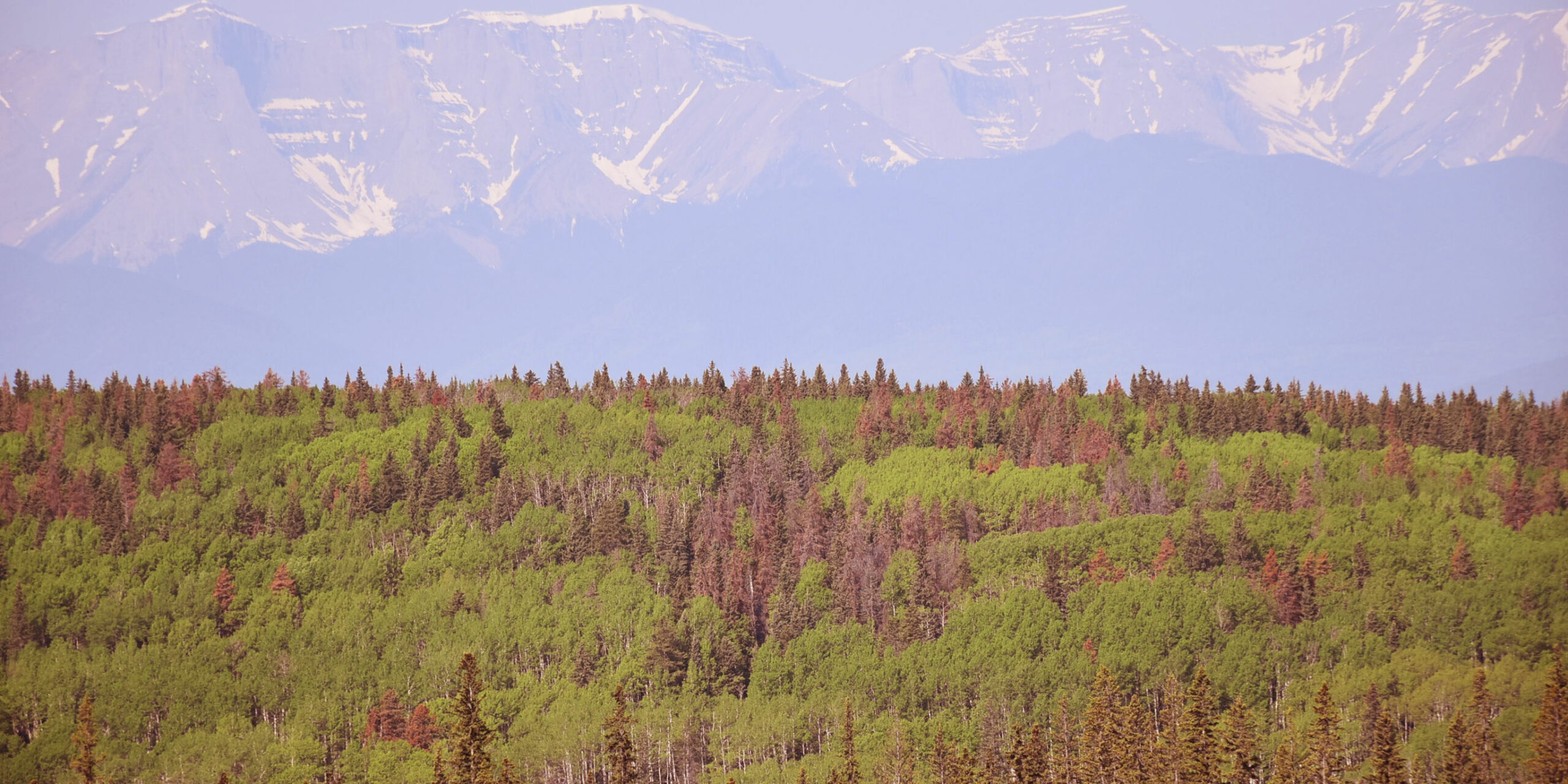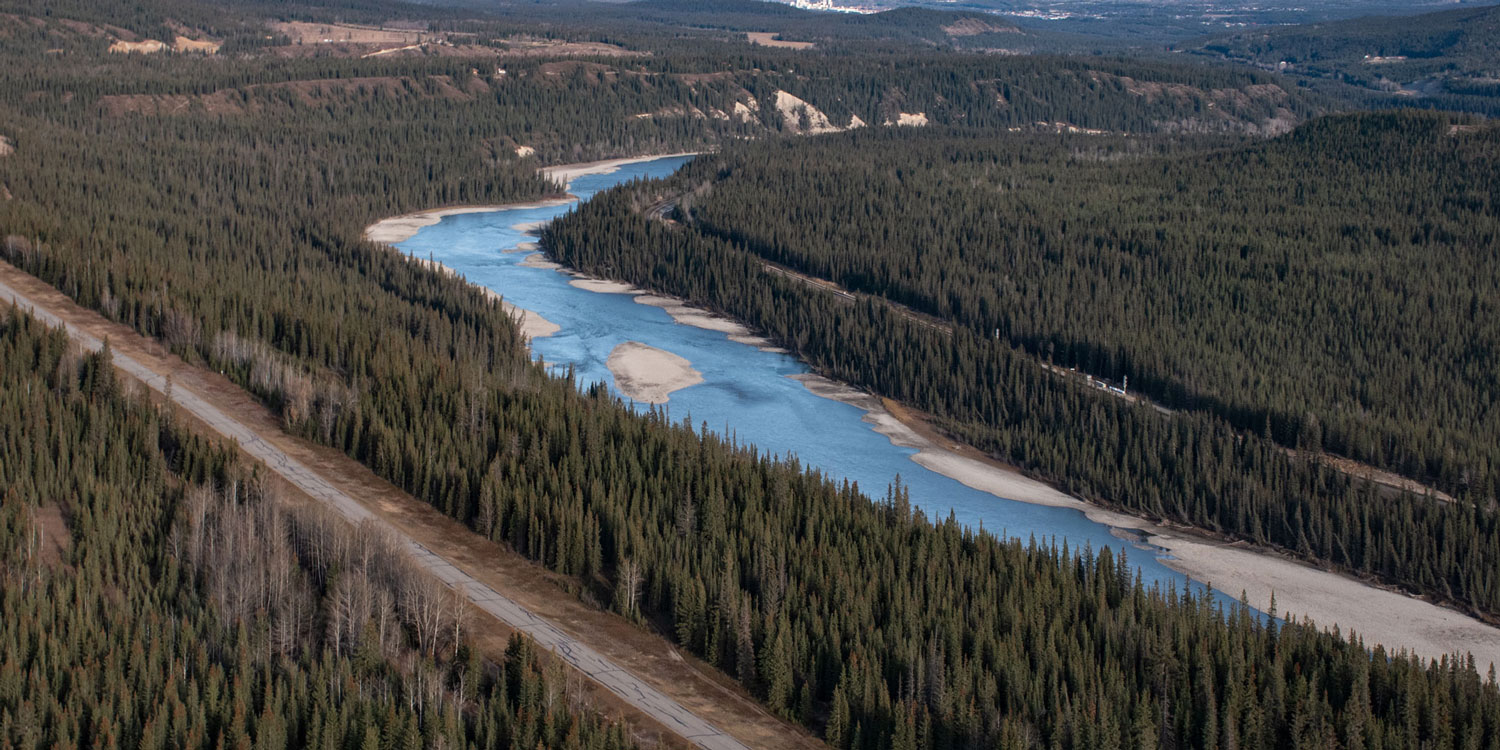
Most high school students don’t know what career they should aim for, at least in my experience. One of my friends wanted to be a lawyer and that ended up working out for him, but the rest of us were more like Cam – just following our interests with no big plan carved in stone, and that’s worked out too. I met Cam a lot later, when we’d both found our way to fRI Research through a lot of back alleys and a million tiny turning points that we rarely gave any thought.
- He grew up in Hinton.
- He loved to get out into the bush especially to his family’s trap line in the Willmore.
Those two facts explain a lot about why he’s so comfortable outdoors, why he’s able to smile through the bugs, mud, and truly horrific bushwhacking. He smiles a lot, a broad, infectious grin that always coaxes me into trying to make a lot of jokes. So how did he end up doing science and training field crews?
Part of it was Mr. Allen, now the principal at Harry Collinge but, at the time Cam’s science teacher.
“He was a good guy and really pushed me to care and get good grades,” says Cam. “That motivation alongside my supporting parents got me into the University of Alberta. I knew I wanted to do something environmental. I just picked Environmental Earth Sciences out of the catalogue. Just kind of went for it.”
I should note, fRI Research doesn’t exactly do earth sciences, which would typically be more like geology, climate, that kind of thing. But all of these subjects overlap and the skills transfer, so it just goes to show that taking a particular course doesn’t lock you into just one career path.
After he finished his degree, he moved back to Hinton and applied for a stream crossing inspector job. He got turned down for that program (super common), but the Grizzly Bear Program needed to hire a crew quickly, and since Cam was already in town, they gave him a call.
That was 2013. He worked the summer setting up hair snag sites down by Nordegg to collect grizzly bear DNA for a small population survey. Then he took what he’d saved up and went to Whistler to ski bum for the winter. The next spring he was invited back by the Grizzly Bear Program, and he worked and saved for the next winter. Life was good and this repeated in 2015, and 2016, and 2017, and then Cam decided he wanted to advance a little in the academic world.
He had tons of hands-on experience doing field research by this point, but he realized he didn’t have the skills to design studies, analyze the data, and write up the results. Cam started applying for grad school. But there was a problem.
“I didn’t have amazing grades in university, and it took a while to find a professor who was willing to take a chance on me.”
I’m not surprised. Cam is plenty smart, but he’s not exactly the kind of guy to shut down his social life to focus on class. It had also been about a five-year gap since his undergrad, so he wasn’t doing this the easy way. But he did eventually find that professor when he met Dr. Nicolas Coops from University of British Columbia.
Sidenote: I’m not saying blow off your classes. You should work hard and build a habit of working hard. But everyone needs some balance.
Anyway, Cam’s master’s project was looking at how earlier spring “green-up”, when all the leaves come out, is affect grizzly bears and their food supply. This ended up being a nice combination of his undergrad studies and grizzly bear field experience, and while doing the masters was demanding, he pumped up his analytical and writing chops and completed it in the designated two-year period with the help of an amazing lab and a great supervisor in Nicholas.
After graduating, Cam made his triumphant return to the Grizzly Bear Program to help wrap up projects, one on what happens when Fish and Wildlife officers have to move a bear in conflict with humans, and another comparing the amount of bear food in areas with the local grizzly bear population sizes. When those were done, he jumped over to the Caribou Program to help launch the 2021 field season.
So that, finally, finishes the story of how he got where he is, a professionally designated wildlife biologist and field crew leader for the Caribou Program. In the spring, he was able to share his considerable experience with a six-member crew, and now he’s working on papers and planning for the next field season. And in all likelihood, he’s eyeing the coming ski season with a big grin on his face.
Hey Cam, give us a song recommendation.
“Tomorrow’s Gonna Be a Brighter Day” by Jim Croce
What do you want to see in the field worker?
Adaptability. Problem solving. Can work well with the rest of the crew.
Most underrated field skill?
Driving on dirt roads. You have to analyze the road conditions and drive to them. Dusty roads can be just as tricky as muddy ones.
You’re camp cook. What’s your go-to meal?
I like to make up an “everything in the pot” burrito recipe. Or spaghetti. Those are my two crowd pleasers. I’m a double threat. That’s that adaptability.
What’s your best advice to students?
I don’t know if I would encourage a specific career. Go to school for a program you think you’ll like—just try it. Get some field experience to find out if you like it; once you find something you really like you will be more willing to put in the time and effort to achieve your goals. Wildlife biology is hard and there’s lots of competition. But that’s because there are a lot of passionate people in it.

